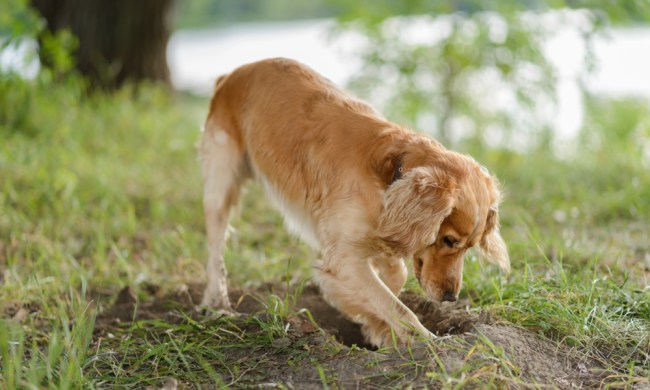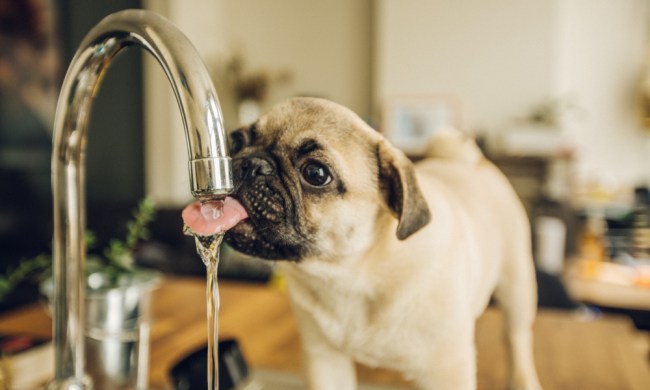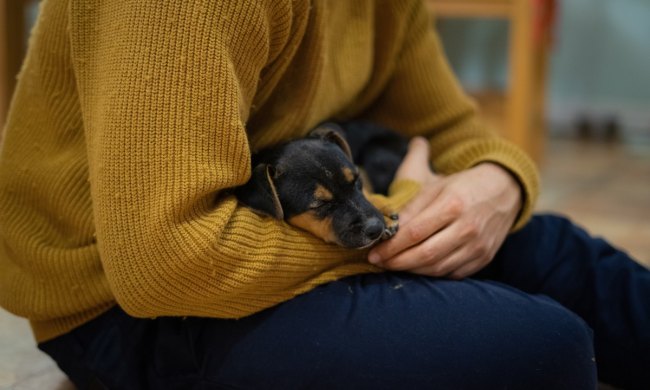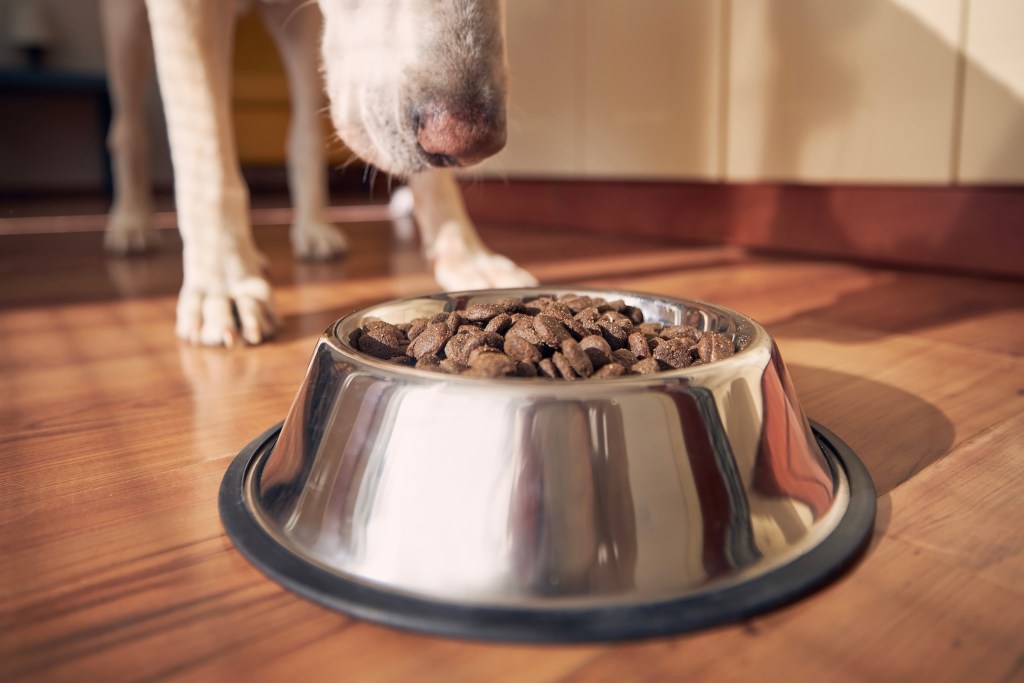
Your dog’s nose is the best tool on the market for sniffing and tackles many different activities throughout the day. The snout acts as the daily news, collecting scents like scraps of information to build a picture of the environment. It often doubles as a communication device, nuzzling the human hand to elicit a response. A dog’s nose serves as an internal thermostat, helping regulate body temperature.
Since it’s a temp controller, a dog’s nose can be warm, cold, wet, or dry, depending upon a few factors — the time of day, Fido’s level of activity, and weather conditions. If you’ve ever asked yourself, “Why is my dog’s nose warm?” — forget what you think you know. Below, we’ll answer what it means when a dog’s nose is warm.
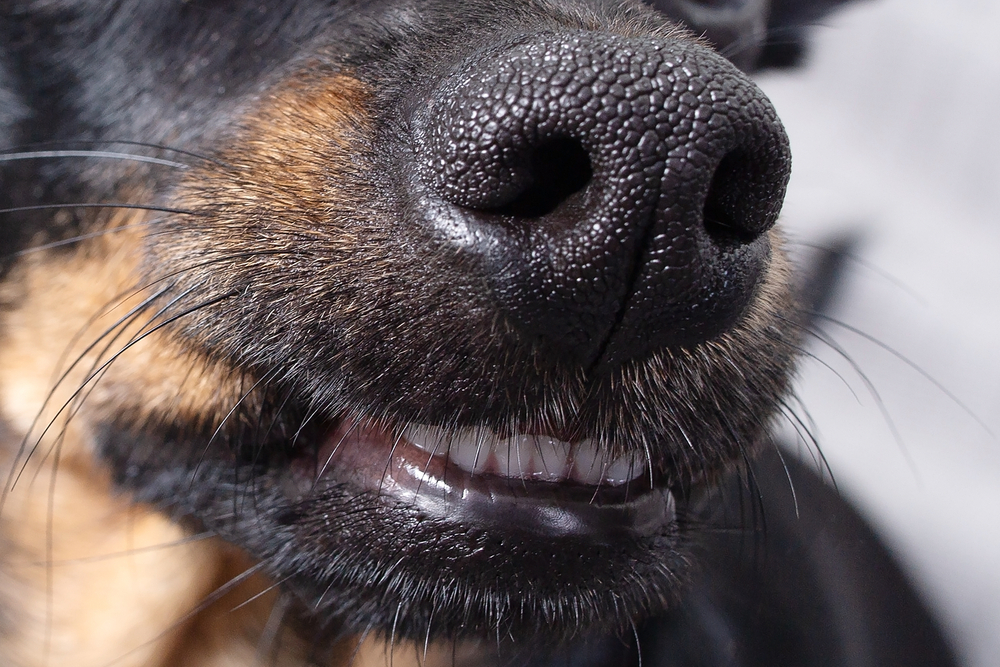
Why is my dog’s nose warm?
Before we answer that question, it’s probably a good idea to explain how a dog’s nose works.
Your pup’s nose is often wet because he licks it frequently to keep it moisturized. That might seem odd until you consider that a wet nose enhances his sense of smell. A moist snout helps trap scents better so that your dog’s 100 million scent receptors can go to work and tell him whose scent it is, what direction it’s coming from, and even if the human or animal he smells is fearful or anxious. The moisture left by licking that powerful instrument cools, and as a result, a dog’s nose is often cold.
But a warm, dry muzzle doesn’t always signal illness. It might be warm for a variety of reasons:
- He may have been sleeping, a state in which he isn’t licking his nose.
- It could be hot outside. As the temperatures increase, so does the likelihood that your dog’s nose will feel warm and dry to the touch. Monitor his water intake and make sure he doesn’t overheat.
- It may be cold outside. If your dog sleeps next to an air vent, the circulating air may cause his nose to dry out, much like winter air can cause your throat to become dry and scratchy.
- He may be older. Older dogs sleep more than younger dogs, which prevents them from licking their noses as much.
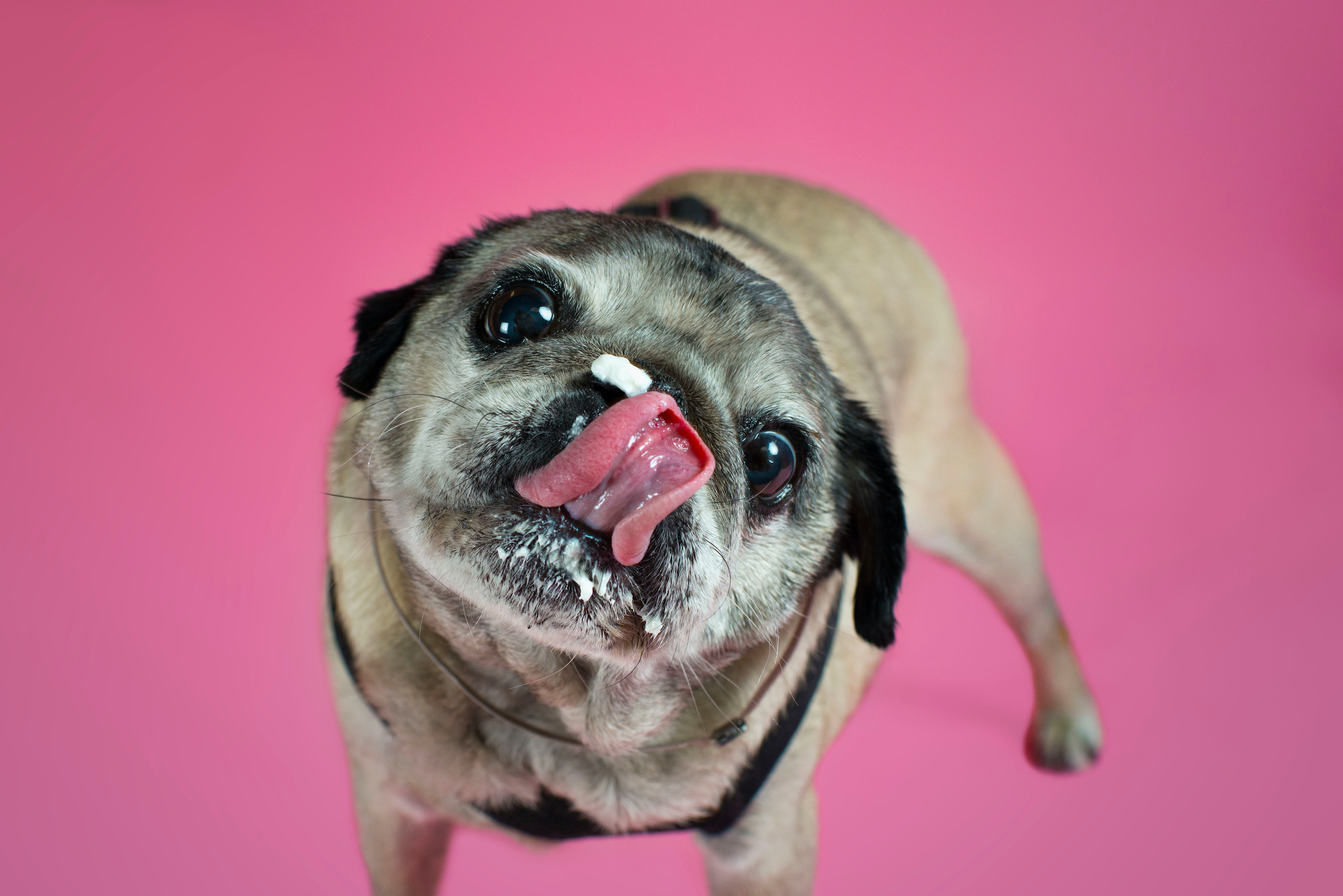
Some breeds are prone to dry noses
Additionally, a warm, dry nose may just be normal for your dog. Some dogs simply don’t lick their noses as much as others do. Others are prone to conditions that affect the natural moisture of their nose.
For example, dogs with short snouts, such as Pugs and Bulldogs, have difficulty licking their faces, which causes their noses to be naturally dryer. Other breeds, such as Lhasa apsos and cocker spaniels, often get blocked tear ducts. This prevents them from draining naturally into the nasal passage, which creates moisture.
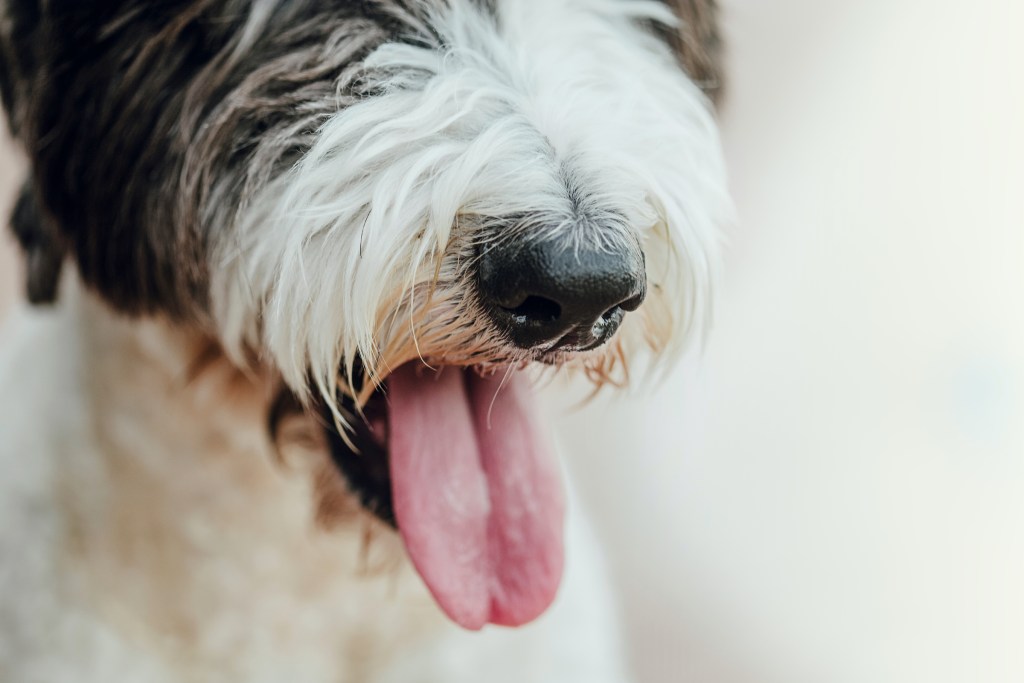
Is a dog’s nose supposed to be warm?
The answer to this question requires nuance. Typically, a dog has a cold, wet nose. However, various factors can cause a dog’s nose to be warm, and not all of them are reasons for concern. For example, if the weather is hot outside, your dog’s nose may follow suit. Touch your nose and you may notice Mother Nature has had a similar effect on your body. Your pup may have also gotten sunburn, which can dry out the nose. Certain flat-faced or short-nosed breeds may also have warmer, drier noses because they physiologically cannot lick their noses like their long-snouted peers, such as a beagle.
Other times, your dog’s warm nose could be a sign of an underlying issue. For example, call a vet if your dog is not urinating, panting excessively, or running a fever.
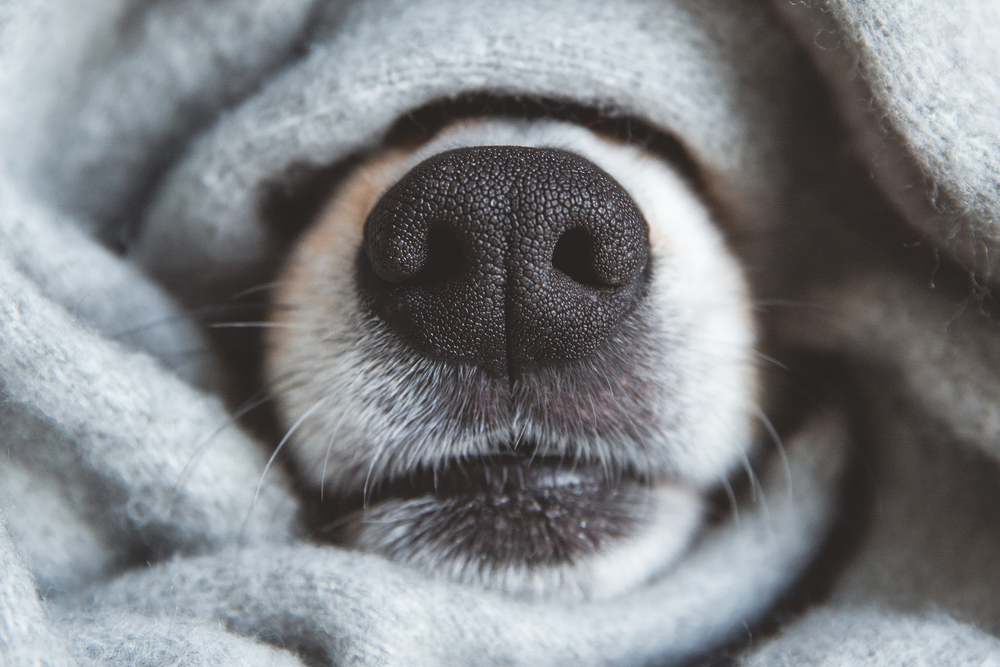
When you should call the vet
As you can see, using the temperature of your dog’s nose to gauge his health isn’t particularly reliable. Contrary to popular belief, a warm nose doesn’t mean your dog is sick; however, the following conditions warrant a call to your veterinarian:
- Difficulty breathing. Seek immediate medical assistance to rule out any lung or respiratory problems, as well as heartworm, heart disease, tumors, or allergies.
- Abnormal discharge, which may signal anything from dental disease to allergies or a respiratory virus like parainfluenza or distemper.
- Nosebleed, which may indicate an injury or infection in his respiratory tract.
- Sore, itchy, or crusty nose, which is a sign your dog may be suffering from allergies, dehydration, or even a sunburn.
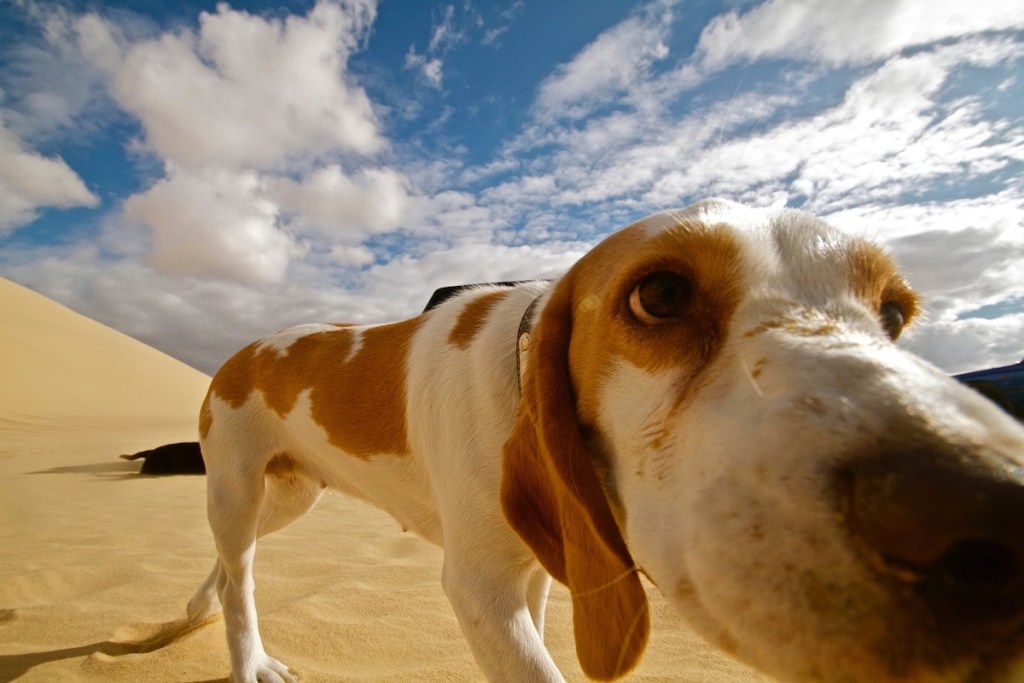
Don’t panic if your pooch’s nose feels warm or dry
So, if your dog’s nose is warm to the touch, stay calm. Stop and consider whether the condition is a function of his activity level, age, or breed, and then look for other symptoms of distress. If there isn’t anything apparently wrong with his nose but he loses his appetite, starts sleeping more, drinks significantly less water, or begins vomiting or having diarrhea, there probably is something else going on.
Starting now, take note of Fido’s nose during the day. Notice when it’s cold and wet as well as when it’s warm and dry. Doing so will help you discover the logical reasons behind each condition, so you can determine what is normal for your particular pup. Then, you can use that benchmark to more accurately assess your dog’s overall health and more confidently know when it’s time to schedule a visit to the vet.
